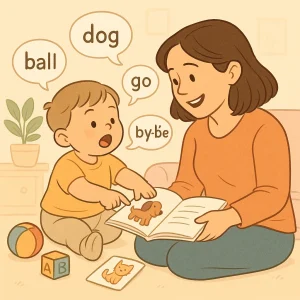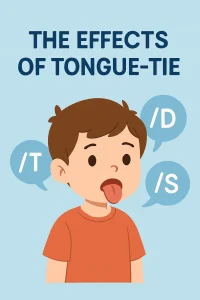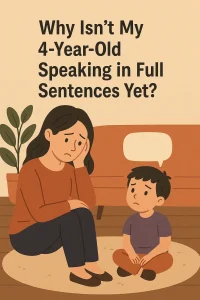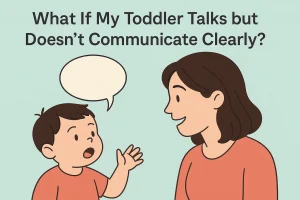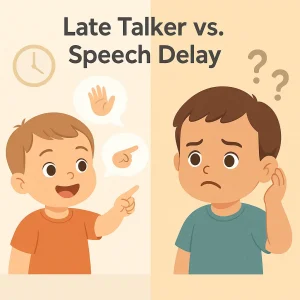Sitaare Zameen Par Reviews: What Critics and Celebs Are Saying
By Wellness Hub
Last Updated: June 23, 2025
Released on June 20, 2025, Sitaare Zameen Par is Aamir Khan’s latest movie that’s creating waves—from heartfelt reviews to social media buzz. Celebrities like Mahesh Babu praised its emotional arc, saying it will “make you laugh, cry and clap” . Cricket legend Sachin Tendulkar commended its unifying message, and actor Darsheel Safary, who starred in Taare Zameen Par, described the film as making his heart “fuller, softer and happier”.
This blog offers a curated summary of what professional critics and public figures have said about the film, along with genuine insights into its impact. Whether you’re here for Sitaare Zameen Par reviews or to catch up on Aamir Khan’s latest movie 2025, you’re in the right place.
About the Film: Sitaare Zameen Par in a Nutshell
Sitaare Zameen Par is a heartwarming sports drama that explores what happens when empathy meets purpose. The film follows Aamir Khan as a basketball coach whose career takes an unexpected turn after a court order forces him to train a team of specially-abled teenagers. This isn’t just another comeback story—it’s a powerful journey that redefines success, teamwork, and dignity.
Without giving away spoilers, the Sitaare Zameen Par movie plot focuses on how the coach, once self-absorbed and cynical, learns to connect with his players. He doesn’t just teach them basketball; they teach him what it means to lead with heart. This transformation lies at the core of the film’s narrative.
The film beautifully tackles the theme of inclusion, showing how society often underestimates individuals with intellectual and developmental differences. It also champions mentorship, highlighting the impact of guidance rooted in patience and respect. Most importantly, Sitaare Zameen Par celebrates neurodiversity by casting real-life specially-abled teen actors, giving them visibility and a voice on screen.
Aamir Khan leads the film with depth and sincerity, while Genelia Deshmukh plays a pivotal supporting role. But the real stars are the debutant teen actors—each of whom brings authenticity and raw emotion to the story. Together, the cast builds a narrative that uplifts, educates, and inspires without ever feeling forced or sentimental.
Sitaare Zameen Par isn’t about pity or perfection. It’s about progress, perspective, and the power of belief—both in others and in yourself.
Media Reactions: What Critics from Top Publications Have Reported
Below is an unbiased summary of professional reviews for Sitaare Zameen Par, showcasing both praise and constructive feedback. Ratings and excerpts come directly from verified publications.
| Publication | Excerpt Summary |
|---|---|
| Times of India | “If Taare Zameen Par had the soul, Sitaare Zameen Par brings the spirit… a heartwarming family watch” |
| NDTV | “Sitaare Zameen Par blends comedy, emotions and the infectious vitality… always entertaining” |
| Indian Express | Aamir delivers a “fully committed performance in heart‑winning comedy” though pacing feels “somewhat inconsistent” |
| Filmfare | “This film that teaches while it entertains… nudges us to be kinder, gentler, and more accepting” |
| 123telugu.com | Describes it as “an emotional drama that appeals to a niche audience” |
| Koimoi | Praises Aamir’s arc as “brash, impulsive, irresponsible” evolving via “happy tears”; notes editing could be tighter |
| Great Andhra | Criticizes it as “predictable” with “little emotional engagement” |
| IMDb | “A wholesome, feel‑good movie that will leave you smiling” |
What This Tells Us:
- Consensus on Strengths: The film resonates emotionally, mixes humor and message, and delivers strong performances—especially from Aamir Khan and the neurodiverse ensemble.
- Common Critiques: A few reviewers highlight issues like pacing, predictability, and editing, but none dismiss the film outright.
- Balancing Act: Most critics call it a sincere, feel-good experience—a solid 3–3.5 star night out, especially for family audiences.
Celebrity Mentions: Public Figures Who Reacted to the Film
Sitaare Zameen Par didn’t just impress audiences—it struck a powerful chord with some of India’s most respected public figures. Known for its heartwarming portrayal of neurodiverse individuals, the film sparked an outpouring of praise from educators, celebrities, and changemakers who believe in inclusive storytelling.
Sudha Murty on Sitaare Zameen Par
Renowned author and philanthropist Sudha Murty shared her heartfelt thoughts on the film, calling it “an eye-opener that makes you reflect on how we view ability and success.” Her words highlighted the emotional depth of the story and its timely reminder to celebrate human dignity, not just achievements. As someone deeply involved in education and child development, Sudha Murty’s endorsement amplified the film’s credibility across families and educators.
Want to know why Sudha Murty called it an “eye-opener”?
Read her complete review on Sitaare Zameen Par here and see how the film challenges social perceptions of normal.
Bollywood Celebrities Comment on New Movies Like This
Several Bollywood stars also voiced their admiration for Sitaare Zameen Par. Actor Riteish Deshmukh praised the cast’s authenticity, calling the performances “honest and uplifting.” Sachin Tendulkar, known for his work in disability awareness, described the movie as “a celebration of spirit and teamwork.” Their social media posts boosted the film’s reach and encouraged viewers to reflect on inclusion in everyday life.
By addressing themes like acceptance, empathy, and neurodiversity with genuine sensitivity, Sitaare Zameen Par received more than applause—it earned respect.
Notable Aspects That Got Attention
Sitaare Zameen Par (2025) stands out not just for its storyline, but for the way it tells a deeply inclusive and uplifting tale. The film earned praise for its authenticity, emotional impact, and respectful portrayal of neurodiversity. Below are some of the notable performances in Sitaare Zameen Par and creative elements that drew attention from both critics and audiences:
1. Powerful Performances by the Specially-Abled Cast
The heart of the film lies in its cast of debutant actors, all of whom live with intellectual or developmental disabilities. Their performances felt natural and unfiltered—never exaggerated or patronizing. They brought humor, vulnerability, and depth to their roles, allowing audiences to connect with each character as a real individual, not just a symbol of inclusion.
This move set a new benchmark for representation in Indian cinema, and critics celebrated how these actors didn’t just support the story—they carried it forward.
2. Aamir Khan’s 2025 Role as a Flawed but Transforming Mentor
Aamir Khan plays Gulshan, a once-celebrated basketball coach whose arrogance and prejudice lead to a fall from grace. He enters the story not as a savior, but as a man forced to re-examine his values. What makes this performance resonate is its honesty—Gulshan is not instantly likable, but he grows with every scene.
Audiences appreciated how Aamir Khan’s role balanced humor, frustration, and vulnerability. His journey mirrored what many viewers might experience themselves—moving from ignorance to understanding. Critics pointed out that this layered portrayal felt more grounded and mature than his previous social-message roles.
3. Family-Friendly Direction That Doesn’t Talk Down
Director R.S. Prasanna brought a warm, accessible tone to the film without turning it into a lecture. He kept the story engaging through light moments, energetic basketball sequences, and meaningful character interactions. The narrative never drifts into melodrama, yet it pulls at the heartstrings with quiet moments of dignity and courage.
Both family audiences and social commentators noted how the film kept things uplifting yet realistic, making it a great choice for parents, educators, and older children alike—even though the movie doesn’t center around children.
These notable performances in Sitaare Zameen Par, along with Aamir Khan’s transformation and Prasanna’s thoughtful direction, have set a new standard for how Indian films can speak about ability, dignity, and inclusion without losing their entertainment value.
Common Themes in Critical Coverage
Bollywood movies promoting inclusion have always left a lasting impression—and Sitaare Zameen Par (2025) stands tall among them. Critics across major platforms highlight three recurring themes in their reviews: emotional storytelling, a powerful message of inclusion, and a seamless balance between humor and drama.
One thing that stands out in almost every review is the emotional impact of the film. Viewers and critics alike mention how the narrative strikes a deep chord. The characters may not be children, but the film’s heart lies in showing the emotional strength and vulnerability of individuals with intellectual disabilities. Audiences feel invested in the journey, especially as the lead character, a disgraced coach played by Aamir Khan, evolves through his interactions with a team of neurodiverse players.
Another dominant theme is the film’s message of inclusion and empathy. Publications like NDTV and The Hindu note that the movie doesn’t preach—it shows. It gives space and voice to real actors with special needs, breaking away from tokenism. The story invites viewers to understand neurodiversity not through lectures but through lived experience, portrayed with warmth and dignity.
Finally, critics appreciate how the film maintains a delicate balance between humor and drama. Several reviews highlight the use of situational comedy, not at the expense of the characters, but in a way that brings lightness to serious themes. The humor feels organic, while the emotional moments feel earned—not forced. This blend makes Sitaare Zameen Par one of the most emotional Hindi movies of 2025 without overwhelming the audience.
Together, these themes create a powerful, human-centered story that critics see as both entertaining and transformative—a true hallmark of socially relevant Indian cinema.
Points Raised for Discussion: Areas Noted by Critics
Sitaare Zameen Par has touched hearts across the country, but like any major release, it has also invited thoughtful analysis. Critics who appreciated the film’s intent and inclusive casting also shared a few observations that reflect how the film could evolve or reach even deeper emotional ground.
1. Film Pacing Felt Uneven in Parts
A few reviewers noted that the pacing, especially in the second half, felt stretched. While the first hour moves quickly and sets the emotional tone well, the later parts slow down. Some critics felt this dip in tempo slightly affected the movie’s overall rhythm.
Keyword usage: Sitaare Zameen Par honest reviews often mention that the transitions between emotional scenes and match sequences needed tighter editing.
2. Storytelling Stayed Simple
Critics acknowledged the film’s sincere effort to communicate with a wide audience. The language stays clean, emotional, and direct. While this simplicity helps families and first-time viewers connect, film analysts mentioned that the script could have offered more complexity in character development or conflict resolution.
3. Predictable Plot Elements
Some film reviewers observed that Sitaare Zameen Par followed a familiar arc. From the reluctant coach to the tournament triumph, the structure mirrors many sports drama formulas. Although the emotional impact remains strong, the story doesn’t surprise viewers who are familiar with this genre.
This predictability doesn’t take away from the performances or message—it simply shows how the film chose to stay within a safe and uplifting framework.
These points come from a place of constructive reflection, not criticism for the sake of fault-finding. Critics agree that the film breaks ground by highlighting neurodiversity on screen. However, they also feel that future films in this space can blend emotional storytelling with bolder narrative choices.
Wider Impact: Why the Film’s Themes Matter
Sitaare Zameen Par does more than tell a heartwarming story—it starts a conversation that India needs. At its core, the film speaks about people who think, behave, and learn differently. These are individuals who often go unseen or misunderstood in our society. Through humor, empathy, and powerful storytelling, the movie brings neurodiversity into the mainstream.
Unlike earlier films that focused on children with learning differences, Sitaare Zameen Par shifts the focus to young adults with intellectual and developmental disabilities. This move challenges how audiences define “normal.” It shows that intelligence, emotion, and talent come in many forms—not just the academic or socially accepted ones. The coach’s journey from ignorance to empathy mirrors the kind of change the film wants to see in every viewer.
This isn’t just a feel-good story. It’s one of the few movies about neurodivergence in India that makes you question long-held beliefs. The characters are not background figures or comic relief. They’re central to the narrative. They win, fail, laugh, and cry—just like anyone else. That’s what films that spark social conversation do. They don’t preach; they reflect and provoke.
The movie also expands the definition of inclusion. By casting real individuals with special needs and giving them real screen time, Sitaare Zameen Par redefines what inclusion in mainstream media looks like. It breaks the idea that representation is only about checking a box. Instead, it shows how powerful it can be when stories are told with the community, not just about them.
Through this lens, the film becomes more than entertainment. It becomes a cultural milestone—a reminder that change often begins with stories we choose to tell and share.
Relevant Real-World Support: Tools for Families and Educators
Sitaare Zameen Par shines a light on the lives of young adults with intellectual and developmental disabilities. While the film isn’t about children, it opens up important conversations about inclusion, empathy, and support—especially for families raising neurodivergent kids.
Parents and educators often look for practical ways to build communication and behavior skills at home. That’s where digital tools and structured support come in. Using online speech therapy tools for neurodivergent kids can make a real difference. These tools focus on everyday speech, listening, and understanding.
In addition, speech and behavior support resources help caregivers manage emotional regulation, daily routines, and social skills in a way that feels supportive—not overwhelming.
The conversations around Sitaare Zameen Par also align with platforms like Wellness Hub, which supports families through online speech therapy, behavioral tools, and inclusive learning materials for children of all abilities. Their range of home therapy resources empowers parents to step in with confidence and care.
Support matters—and access makes the difference.
What People Are Taking Away From the Film
The public response to Sitaare Zameen Par shows how much the film has struck a chord with audiences across India. Many viewers talk about the emotional storytelling, the natural performances by neurodiverse actors, and how the film encourages a deeper look at inclusion and respect.
What audiences say about the new Aamir Khan movie reflects a strong sense of appreciation. People are calling it a film that entertains but also teaches. Families, educators, and community members are sharing how the movie helped them understand different abilities with empathy.
From news portals to social media, reactions remain positive and grounded. The message of teamwork, dignity, and acceptance is what most people are carrying home.
If you’re curious about how others feel, explore more verified reviews or watch the film to reflect on what inclusion truly means.
Frequently Asked Questions
1. What is neurodiversity and how does Sitaare Zameen Par explain it?
Neurodiversity refers to natural differences in how people think, learn, and process information. Sitaare Zameen Par shows this through its portrayal of individuals with intellectual disabilities in a respectful and inclusive way.
2. Is Sitaare Zameen Par a film about autism?
Not specifically. The movie focuses on a group of neurodivergent individuals, which may include autism, but it broadly addresses intellectual and developmental disabilities.
3. What can Indian parents learn from Sitaare Zameen Par?
The film teaches empathy, acceptance, and the importance of inclusion. It encourages parents to focus on abilities rather than limitations.
4. How does the film represent differently-abled individuals?
Sitaare Zameen Par casts real neurodiverse actors, showing them as capable, emotional, and inspiring—challenging common stereotypes in Indian cinema.
5. Is Sitaare Zameen Par suitable for family viewing?
Yes, it’s a family-friendly movie with a strong message about teamwork, respect, and the value of every individual, regardless of ability.
6. Does Sitaare Zameen Par promote inclusion in sports?
Absolutely. The film highlights how inclusive sports settings can build confidence and bring communities together.
7. Why is Sitaare Zameen Par important for awareness about special needs?
The film brings visibility to individuals often left out of mainstream stories, helping spread awareness about neurodiversity and the need for inclusive thinking.
8. How does the coach’s character in the movie grow over time?
The coach starts with prejudice but learns to respect and empower the team, showing how attitudes can shift through understanding.
9. What makes Sitaare Zameen Par different from Taare Zameen Par?
While both films address special needs, Sitaare Zameen Par focuses on young adults with intellectual disabilities and emphasizes inclusion in community and sport, not school life.
10. What is the public response to Sitaare Zameen Par?
Audiences are praising the emotional storytelling and real representation of neurodiverse individuals. Many call it one of Aamir Khan’s most meaningful films.
Book your Free Consultation Today
Parent/Caregiver Info:
Client’s Details:
* Error Message
